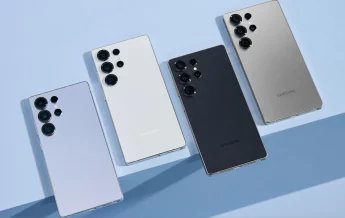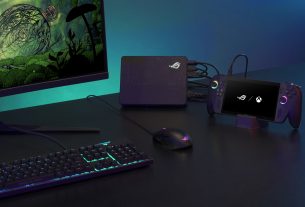
Google Pushes Back Pixel 10 Pro and Pixel Fold 2: What It Means for the Future of Foldables and AI-First Devices
In a surprising yet telling move, Google has reportedly delayed the launch of its much-anticipated Pixel 10 Pro and Pixel Fold 2 smartphones. Initially expected in early October, both devices are now slated for a later release date, with internal documents pointing to a strategic shift in Google’s product timeline. This delay isn’t just a blip on the radar; it’s a signal of the growing complexity of the smartphone market, especially as AI integration, foldable form factors, and custom silicon push the boundaries of what’s possible in mobile computing.
For tech-savvy consumers and gadget enthusiasts, this development raises questions and expectations. Why the delay? What’s coming that requires more time? And how will Google’s repositioning affect the broader landscape of AI-enabled mobile hardware? Here’s everything we know so far and what it could mean for the future.
Pixel 10 Pro and Fold 2: A Strategic Delay
Google is postponing the launch of its flagship Pixel 10 Pro and second-generation Pixel Fold to later this year. Though the devices were expected to debut alongside the company’s other fall hardware in early October, new scheduling points to a separate, standalone event.
The Pixel 10 Pro and Fold 2 are now likely to be revealed closer to late October or even early November. This staggered launch could be a deliberate attempt by Google to give its premium products the spotlight they deserve, away from the noise of its more mainstream Pixel 9 lineup.
From a marketing and product development perspective, the delay seems calculated. It allows Google more time to refine its latest innovations, including AI-powered features and enhancements to its proprietary Tensor chipset.
The AI-Centric Vision: Beyond Just Hardware

Google’s current trajectory is all about making smartphones smarter, truly smarter. The Pixel 10 Pro and Fold 2 are expected to fully embrace AI-first design, moving beyond superficial features into deeply integrated, on-device intelligence.
The Tensor G4 chip, which will likely power both devices, is reportedly designed with next-gen AI use cases in mind. Real-time transcription and translation with near-zero latency, context-aware AI photography that enhances images based on scene detection, lighting, and subject focus, advanced summarization tools that can distill entire email threads or web pages on the fly, and smarter Assistant integration where Google Assistant becomes more proactive and contextually relevant—these are not simply additive features. They are the new interface between users and the digital world. By pushing back the launch, Google is likely ensuring these tools are polished, secure, and deeply embedded in the user experience.
Foldable 2.0: A Refinement, Not a Reinvention
While Google’s first Pixel Fold was met with a mix of intrigue and critique, the Fold 2 aims to address many of its predecessor’s limitations. Google has refined the hinge mechanism, improved durability, and made the form factor slimmer and lighter.
One of the biggest updates is expected to be in the display technology. The Fold 2 will likely feature LTPO OLED panels with 120Hz refresh rate for both inner and outer displays, ultra-thin glass for better touch response and less creasing, and under-display camera improvements to reduce bezel distractions.
Combined with AI-optimized multitasking and app continuity features, the Fold 2 is shaping up to be more than a gimmick. It’s a serious contender in a market still largely dominated by Samsung’s Z Fold series.
Tensor G4: Google’s Custom Silicon Enters Maturity
The delay may also be tied to the finalization of the Tensor G4 chip, Google’s fourth-generation custom SoC. While previous Tensor iterations showed promise, they struggled with thermal management and GPU efficiency compared to Apple’s A-series or Qualcomm’s Snapdragon 8 Gen 3.
With Tensor G4, Google is reportedly addressing those issues by utilizing a more advanced 4nm process node, enhancing the Neural Processing Unit for faster on-device AI computation, and redesigning thermal pipelines to reduce overheating.
These upgrades are critical. Not only do they allow AI to run locally (without draining battery or sending data to the cloud), but they also support the new AI-first features Google is betting on.
Pixel 10 Pro: Premium, Personalized, and Purposeful

Although details are still under wraps, the Pixel 10 Pro is expected to solidify Google’s vision for a premium Android experience. Leaks suggest a 6.7-inch LTPO AMOLED panel, possibly with an adaptive refresh rate up to 144Hz, a triple-lens camera system with periscope zoom, new AI enhancements, and upgraded low-light performance, and a redesigned body with titanium or ceramic finishes to compete with the iPhone 16 Pro and Galaxy S25 Ultra.
Most notably, Google may be integrating its Gemini AI assistant directly into the Pixel 10 Pro’s core UI, offering predictive help, smarter notifications, and even generative AI capabilities for creatives.
Why This Delay Matters
In the fast-paced world of tech, delays are often seen as red flags. But in this case, the move seems more strategic than reactive. Google is no longer playing catch-up. It’s carving out a new category, AI-first, foldable-enhanced, user-centric smartphones.
By postponing the launch, Google is avoiding direct competition with Apple’s expected iPhone 16 launch in September, giving time for software optimization, especially for the latest Android 15 build, and aligning the release with AI ecosystem rollouts, including Gemini upgrades and Workspace integrations.
This could translate into a stronger product reception, better reviews, and long-term market traction.
A Competitive Landscape Awaits
Google isn’t operating in a vacuum. Apple, Samsung, and upstarts like OnePlus and Honor are all advancing aggressively. Samsung’s recent Galaxy Z Fold 6 continues to refine the foldable experience, while Apple is rumored to be testing its own foldable prototypes.
What gives Google an edge is its vertical integration. From hardware to software to AI, the Pixel experience is increasingly cohesive. With Android 15 optimized for foldables and on-device AI, Google can deliver a level of synergy most OEMs can’t match.
Conclusion: A Calculated Step Forward

Delays in the tech world are rarely random, and Google’s decision to postpone the Pixel 10 Pro and Fold 2 suggests a company playing the long game. By ensuring their next-generation smartphones deliver not only on hardware, but on seamless AI integration and next-level user experience, Google is positioning itself as more than a smartphone manufacturer: it’s becoming the architect of the AI-powered mobile future.
For enthusiasts, developers, and early adopters, the wait might feel like a hiccup. But if Google delivers on its promises, the Pixel 10 Pro and Fold 2 could set a new benchmark for what smartphones can be in an era where intelligence, personalization, and innovation are everything.







